In dentistry, the word caries is used to describe a bacterial disease that destroys the hard tooth structure. Although tooth decay is the most common dental disease, nobody is born with tooth decay. Caries is also not inheritable.
How is a hole made in the tooth?
Millions of bacteria live in our mouth and naturally settle on our teeth. These bacteria, primarily the so-called streptococci, feel very comfortable in the deep pits and spaces between the teeth. There they can settle and multiply undisturbed. As a result of this proliferation, an increasingly thick layer of bacteria arises: the plauqe. Some types of bacteria in this plaque system can convert sugar into acid.
This acid attacks the tooth enamel and decalcifies it. Visible white spots appear. If this decalcification proceeds unhindered, the tooth surface collapses and a hole is created.
Tooth decay is a process in which the bacteria and acid work their way further and further into the tooth. The hard enamel is damaged first, then the softer dentine. If the bacteria are in contact with it, the tooth can sometimes be painful or sensitive. The nerve fibers inside the tooth react with pain, particularly when eating sweet or cold foods. If caries is left untreated at this stage, the bacteria can eat away at the entire tooth and cause severe discomfort.
If a tooth is affected by caries, it cannot be cured with any medication. The caries and the diseased tooth substance must be removed mechanically. Because the tooth substance removed in this way no longer grows back, the defect that has arisen must be treated with a suitable filling material.
In order to effectively prevent tooth decay, the acid-producing bacterial coating must be regularly and thoroughly removed from the teeth. This can best be done mechanically with a toothbrush on the smooth surfaces. In places where the toothbrush cannot reach, for example in the interdental spaces, the dental floss or the interdental brush helps. The most important tool for oral health, however, remains the regular visit to the dental check-ups and dental hygiene.
Do you have any further questions?
Contact us by phone on 044 215 51 55 or by email at info@zurichdental.ch.








